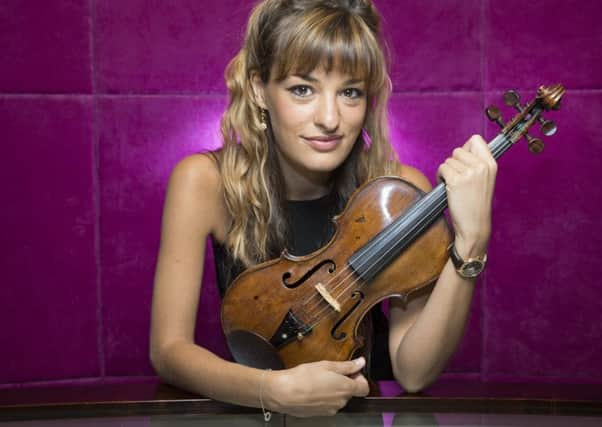Music review: RSNO & Nicola Benedetti


RSNO / Nicola Benedetti ****
Glasgow Royal Concert Hall
She was, without doubt, the hot attraction, especially when she is, as now, so much on top of her game. I noticed a significant change last year when she delivered Shostakovich’s 1st concerto (also born out in her recent recording) with a new found maturity, composure and effortless musicality. These qualities were again present in her performance on Saturday of the Tchaikovsky concerto.
Her opening notes emerged with assertive sensitivity, commanding yet inclusive to the orchestral texture round around her. Her handling of the long first movement was one of cool technical mastery, instinctive rhythmic precision and an immutable realisation of the poetic in Tchaikovsky’s rich melodic invention.
Advertisement
Hide AdAdvertisement
Hide AdActing like a combined foil to that, the languid Canzonetta, its easeful melodies exquisitely sculpted in Benedetti’s hands, and the vivacious Finale with its rustic exuberance and gamesmanship between soloist and orchestra, were an equally thrilling tour de force. It’s wonderful to see Benedetti in such consistent and vibrant form.
She was solidly supported by conductor Peter Oundjian and his orchestra for the most part, some gorgeous interchanges in the slow movement, but a few rhythmical uncertainties towards the end. And for goodness sake, can we not get smiles all round from the band when receiving applause? With the atmosphere so electric, the audience response so openly vocal, you’d have thought they’d be grinning from ear to ear. Yet so many po-faces..?
The second half featured Rachmaninov’s hefty Second Symphony, a work teeming with gorgeous open-hearted melodies that essentially speak for themselves, but also great washes of musical undercurrent that require imagination and care to sustain their interest and define their purpose.
In the case of the former, this was a sustained triumph, Oundjian’s orchestra revving up emotionally as the unending thrills unfolded from each spine-tingling theme. Yet somehow they never quite found that ultimate release of ecstasy, the strings often overshadowed by the heavy brass, and many of the link sections lacking meaningful direction and textural definition. Fine if you were just there for the good tunes.
Plenty of that at the very start of the programme in Khatchaturian’s Waltz from Masquerade.